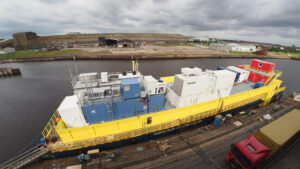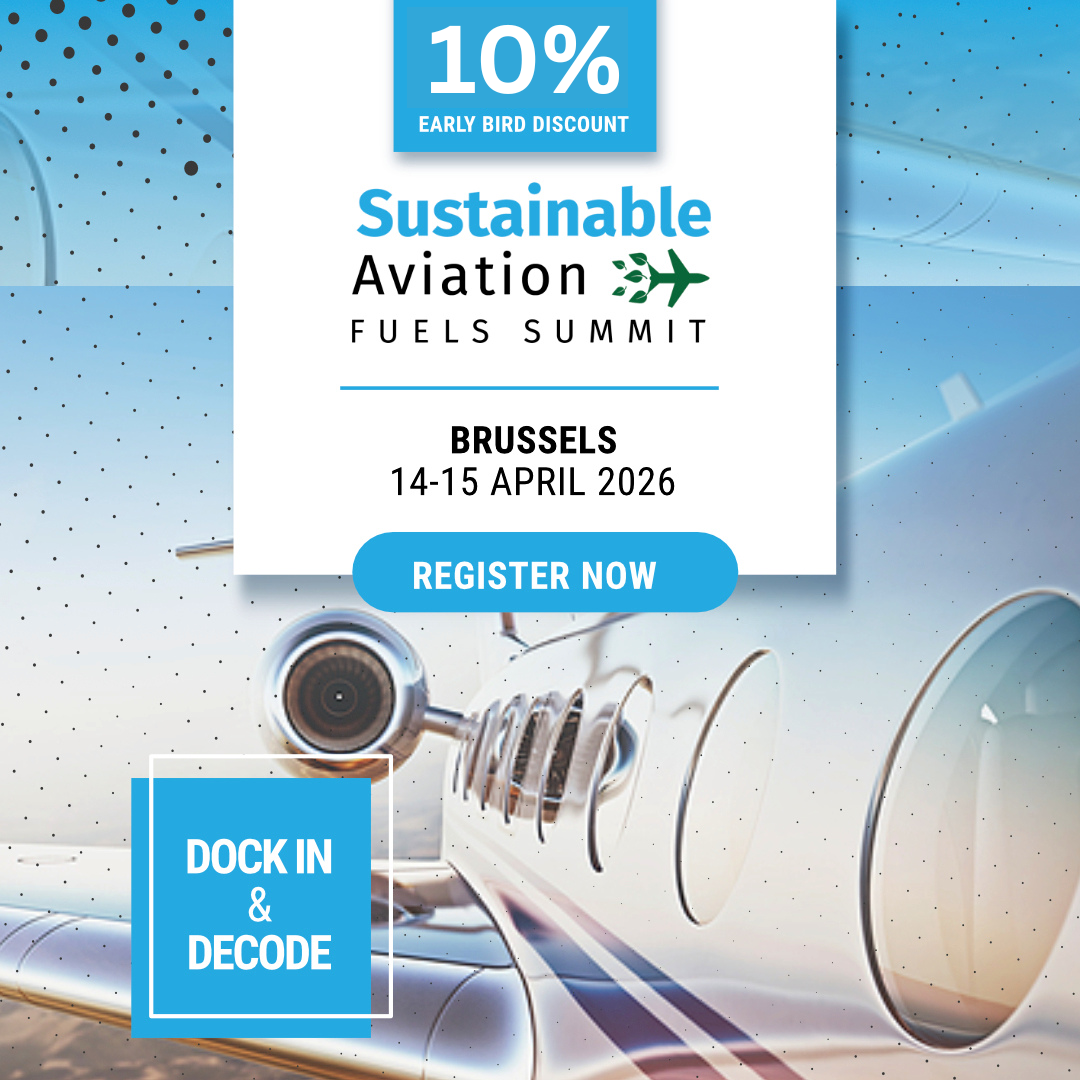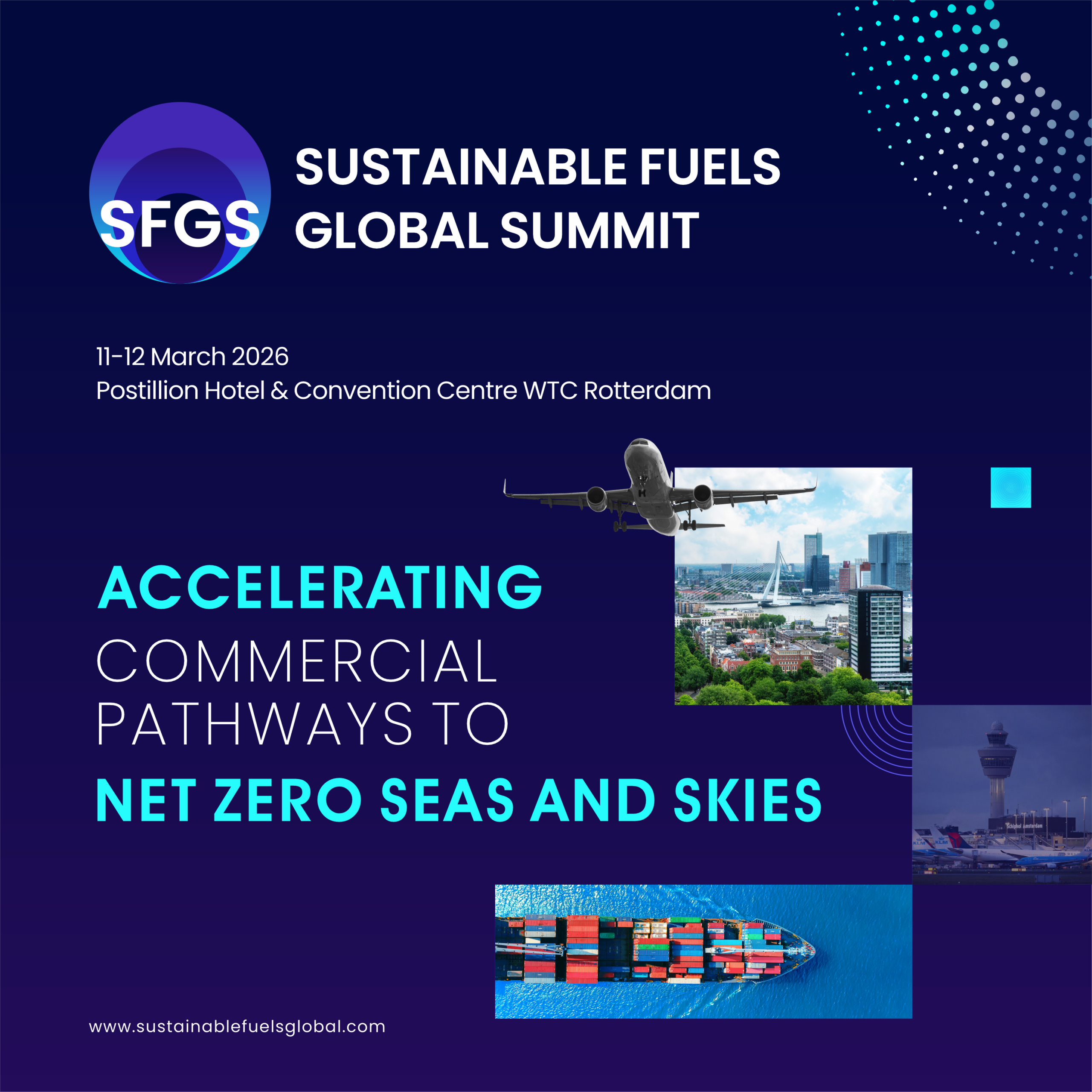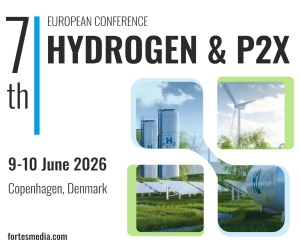Germany is set to begin testing offshore production of synthetic fuels using wind power, seawater and atmospheric CO₂, in a landmark demonstration under the country’s flagship H2Mare hydrogen initiative.
A floating barge equipped with a modular power-to-X (PtX) system is now docked in Bremerhaven and will be deployed later this year off the coast of Helgoland in the North Sea. Developed by the Karlsruhe Institute of Technology (KIT) and partners, the system integrates several components including direct air capture (DAC), seawater desalination, high-temperature electrolysis, and Fischer-Tropsch synthesis.
The platform is designed to produce synthetic fuel completely off-grid, powered solely by offshore wind. Hydrogen is generated on-site from desalinated seawater and, combined with captured CO₂, is converted into synthetic hydrocarbons. The barge’s modular, flexible setup enables it to operate under fluctuating wind conditions – key to future commercial viability.
As part of the PtX-Wind subproject, researchers are also examining the potential to produce other e-fuels such as methanol, liquid methane, and ammonia offshore. In addition to performance and efficiency trials, the test will also evaluate the impacts of saltwater exposure, wave conditions, and regulatory frameworks on the system.
Funded by Germany’s Federal Ministry of Research, Technology and Space, the H2Mare project is one of the country’s most ambitious pushes into offshore green fuel technology.
Technology & Feedstocks
Germany to Trial Offshore Synthetic Fuel Production from Wind, Air and Seawater











